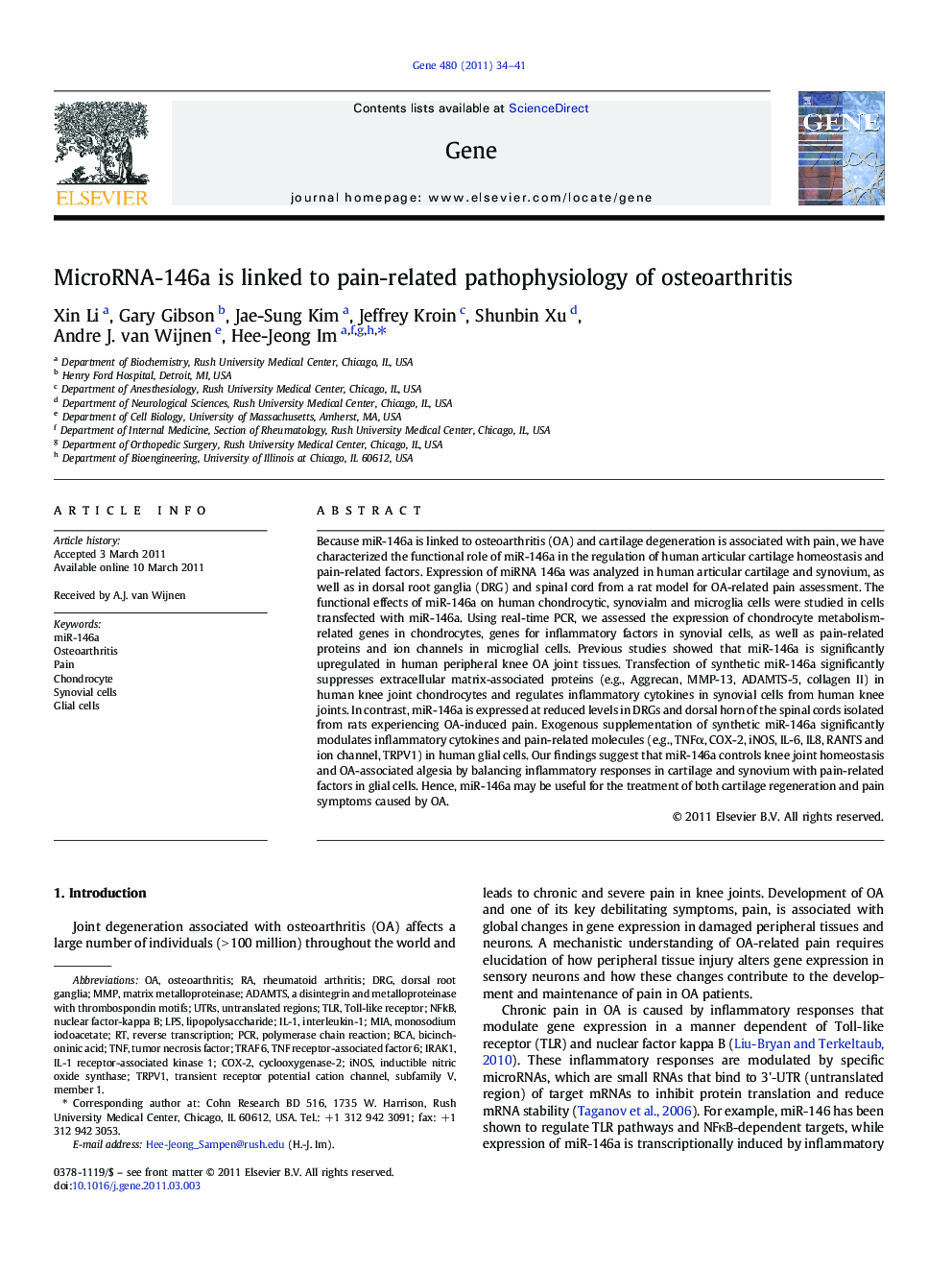| Article ID | Journal | Published Year | Pages | File Type |
|---|---|---|---|---|
| 5907611 | Gene | 2011 | 8 Pages |
Abstract
Because miR-146a is linked to osteoarthritis (OA) and cartilage degeneration is associated with pain, we have characterized the functional role of miR-146a in the regulation of human articular cartilage homeostasis and pain-related factors. Expression of miRNA 146a was analyzed in human articular cartilage and synovium, as well as in dorsal root ganglia (DRG) and spinal cord from a rat model for OA-related pain assessment. The functional effects of miR-146a on human chondrocytic, synovialm and microglia cells were studied in cells transfected with miR-146a. Using real-time PCR, we assessed the expression of chondrocyte metabolism-related genes in chondrocytes, genes for inflammatory factors in synovial cells, as well as pain-related proteins and ion channels in microglial cells. Previous studies showed that miR-146a is significantly upregulated in human peripheral knee OA joint tissues. Transfection of synthetic miR-146a significantly suppresses extracellular matrix-associated proteins (e.g., Aggrecan, MMP-13, ADAMTS-5, collagen II) in human knee joint chondrocytes and regulates inflammatory cytokines in synovial cells from human knee joints. In contrast, miR-146a is expressed at reduced levels in DRGs and dorsal horn of the spinal cords isolated from rats experiencing OA-induced pain. Exogenous supplementation of synthetic miR-146a significantly modulates inflammatory cytokines and pain-related molecules (e.g., TNFα, COX-2, iNOS, IL-6, IL8, RANTS and ion channel, TRPV1) in human glial cells. Our findings suggest that miR-146a controls knee joint homeostasis and OA-associated algesia by balancing inflammatory responses in cartilage and synovium with pain-related factors in glial cells. Hence, miR-146a may be useful for the treatment of both cartilage regeneration and pain symptoms caused by OA.
Keywords
MMPTLRiNOSBCAtransient receptor potential cation channel, subfamily V, member 1COX-2MIAIRAK1DRGADAMTSIL-1NFkBTRPV1LPSUTRsTNFRheumatoid arthritisOsteoarthritisinterleukin-1miR-146abicinchoninic acida disintegrin and metalloproteinase with thrombospondin motifsToll-like receptorPainreverse transcriptionglial cellsSynovial cellsCyclooxygenase-2TNF receptor-associated factor 6tumor necrosis factorNuclear factor-kappa Blipopolysaccharidematrix metalloproteinaseUntranslated regionspolymerase chain reactionPCRChondrocytedorsal root gangliamonosodium iodoacetate
Related Topics
Life Sciences
Biochemistry, Genetics and Molecular Biology
Genetics
Authors
Xin Li, Gary Gibson, Jae-Sung Kim, Jeffrey Kroin, Shunbin Xu, Andre J. van Wijnen, Hee-Jeong Im,
